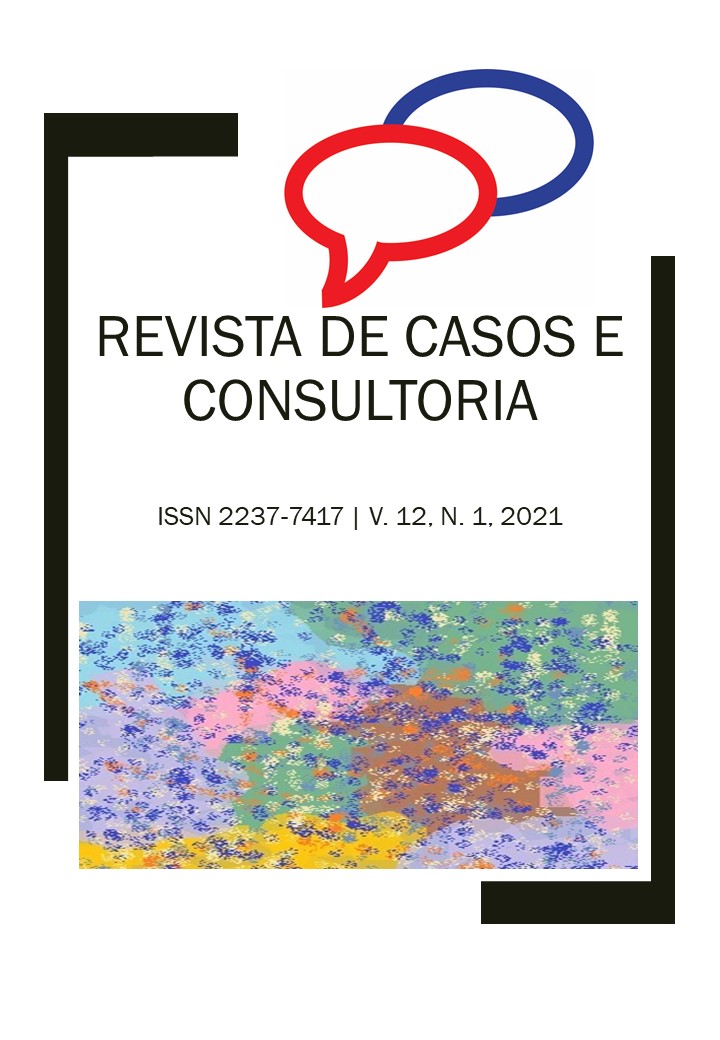Survey of drug consumption used in the treatment protocol for Covid-19 in drug stories in the South Zone of Teresina
Keywords:
COVID19; Self-medication; Clinical pharmacy.Abstract
The outbreak of COVID-19, a new disease that has been plaguing the world for several months, had its appearance at the end of the year 2019. These viruses usually cause colds common to respiratory diseases. Research is taking place around the world to find a drug to cure it or at least limit the mortality rate. In Brazil, many of these drugs have disappeared from pharmacy shelves, especially hydroxychloroquine and chloroquine, making access difficult for their chronic users, and increasing the risk of self-medication. Thus, the present carried out a survey on the consumption of medicines used in the COVID-19 treatment protocol in drugstores in the south of Teresina-PI. The field research was conducted with pharmacists addressing the consumption of medicines used in the COVID-19 treatment protocol in drugstores in the south of Teresina-PI. Pharmacists interviewed in this study reported increased sales of drugs used in the COVID-19 protocol, as well as increased sales of vitamins in this same period, the survey also demonstrates that all people bought the drugs used for COVID-19 with the intention of of prevention. The most requested drugs over the counter at the pharmacy by customers was ivermectin (100%), followed by azithromycin (54%), the drugs most prescribed by doctors for the treatment of COVID-19, where azithromycin was the most prescribed drug (100 %), followed by ivermectin (91%) and prednisone (55%). Misinformation has been one of the main aggravating factors, as the population has indiscriminately used the test drugs used for the treatment of COVID-19, which requires awareness among the population.
Downloads
References
AGOSTINI, M.L.; ANDRES, E.L.; SIMS, A.C.; et al. A suscetibilidade do coronavírus ao remdesivir antiviral (GS-5734) é mediada pela polimerase viral e pela exoribonuclease de revisão. MBio, v. 9, n.2, 2018.
ANVISA.Anvisa emite nota de esclarecimento sobre ivermectina.Disponicel em https://observiumufrj.wixsite.com/observium/single-post/2020/07/15/anvisa-emite-nota-de-esclarecimento-sobre-ivermectina. Acesso em 26 de abril 2021.
ARRAIS, P. S. D. et al. Prevalência da automedicação no Brasil fatores associados. Revista de Saúde Pública, v.50, p.2016.
ARRAIS, Paulo Sérgio D. et al. Perfil da automedicação no Brasil. Revista de Saúde Pública, v. 31, p. 71-77, 1997.
BATISTA, E.L. Grupo de médicos defende tratamento sem eficácia comprovada contra Covid-19 em jornais. Folha de S.Paulo 2021; 23 fev. Disponível em :https://www1.folha.uol.com.br/equilibrioesaude/2021/02/grupo-de-medicos-defende-tratamento-precoce-sem-eficacia-contra-covid-19-em-jornais.shtml. Acesso em 20/08/2021.
BRASIL. Portal Brasileiro de Dados Abertos. Venda de Medicamentos Industrializados Sujeitos à Escrituração no SNGPC. 2021.Disponível em: https://dados.gov.br/dataset/venda-de-medicamentos-industrializados-sngpc. Acesso acessado em 28 de fevereiro de 2021.
CALY, L.; DRUCE, J.D.; CATTON, M.G. et al. O medicamento aprovado pela FDA ivermectina inibe a replicação do SARS-CoV-2 in vitro. Antiviral Research. v.178, p.1047-87, 2020.
CARVALHO, W.; GUIMARÃES, Á. Desinformação, Negacionismo e Automedicação: a relação da população com as drogas “milagrosas” em meio à pandemia da COVID-19.InterAmerican Journal of Medicine and Health, v. 3. 2020.
CHAN, F.W.; KOK, K.H.; ZHU, Z. et al. Caracterização genômica do novo coronavírus humano-patogênico de 2019 isolado de um paciente com pneumonia atípica após visitar Wuhan. InfectíferasEmerg. v.9, p.221–36, 2020.
CHEN, Y. et al. Análise da estrutura da ligação ao receptor de 2019-nCoV. Biochemical and Biophysical Research Communications. v525, p.135-140, 2020.
FAN, E.; BRODIE, D.; SLUTSKY, A. S. Acute respiratory distress syndrome: advances in diagnosis and treatment.Jama, v. 319, n. 7, p. 698-710, 2018.
HOLSHUE, M.L. et al. First case of 2019 novel coronavirus in the United States.New England Journal of medicine. v. 382, p.929–36.2020.
IVASHKIV, L.B.; DONLIN, L.T. Regulação das respostas de interferon tipo I. Nat RevImmunol,; v.14, p.36–49, 2014.
LAI, C.C.; LIU, Y.H, WANG, C.Y et al. Estado portador assintomático, doença respiratória aguda e pneumonia devido a coronavírus 2 da síndrome respiratória aguda grave (SARS-CoV-2): fatos e mitos. J MICROBIOL IMMUNOL INFECT. v.20, p.30040-2, 2020.
LAIRD, E. et al. Vitamin D and inflammation: potential implications for severity of Covid-19.Ir Med J, v. 113, n. 5, p. 81, 2020.
MALIK, Muna et al. Self-medication during Covid-19 pandemic: challenges and opportunities.Drugs&Therapy Perspectives, v. 36, n. 12, p. 565-567, 2020.
MELO, J. R. R. et al. Automedicação e uso indiscriminado de medicamentos durante a pandemia da COVID-19.Cadernos de Saúde Pública, v. 37, p. e00053221, 2021.
MERGULHÃO A, CASTRO R. Aplicativo de Pazuello sugere "tratamento precoce" com cloroquina para sintomas de Covid-19.2021. Disponível em: https://epoca.globo.com/brasil/aplicativo-de-pazuello-sugere-tratamento-precoce-comcloroquina-para-sintomas-de-covid-19-1-24847108.Acesso em 26 de abril 2021.
OLIVEIRA, A. G. L.; MORMINO, K.B.N.T. OS RISCOS DA AUTOMEDICAÇÃO NO TRATAMENTO DO COVID-19: UMA REVISAO DE LITERATURA.Encontro de Extensão, Docência e Iniciação Científica (EEDIC), v. 7, 2020.
PANAGIOTOU, Grigorios et al. Low serum 25-hydroxyvitamin D (25 [OH] D) levels in patients hospitalised with COVID-19 are associated with greater disease severity: results of a local audit of practice. medRxiv, 2020.
SAÚDE DEBATE. Plataforma registra aumento de mais de 1.800% nas vendas de Ivermectina e alerta para riscos de automedicação. Saúde Debate 2020. Disponível em :http://saudedebate.com.br/noticias/plataforma-registra-aumento-de-mais-de-1-800-nasvendas-de-ivermectina-e-alerta-para-riscos-de-automedicacao. Acesso em 22 de julho de 2021.
SCARAMUZZO M. Venda de remédios do 'kit covid' movimenta R$ 500 mi em 2020. Valor Econômico 2021; 5 fev. https://valor.globo.com/empresas/noticia/2021/02/05/venda-de-remedios-do-kit-covid-movimenta-r-500-mi-em-2020.ghtml
SONG, Z., XU, Y., BAO, L., ET AL.. De SARS a MERS, colocando os coronavírus no centro das atenções. Vírus, v.11 , 2019.
STRINAet al., Rede CoVida. Nota Técnica 06: ivermectina não deve ser indicada para tratamento de Covid-19.https://redecovida.org/relatorios/nota-tecnica-06-ivermectina-nao-deve-ser-indicada-para-tratamento-de-covid-19/. Acesso em 26 de agosto 2021.
WORLD HEALTH ORGANIZATION et al. The Role of the pharmacist in self-care and self-medication: report of the 4th WHO Consultative Group on the Role of the Pharmacist, The Hague, The Netherlands, 26-28 August 1998. In: The Role of the pharmacist in self-care and self-medication: report of the 4th WHO Consultative Group on the Role of the Pharmacist, The Hague, The Netherlands, 26-28 August 1998. 1998.
YOUNG, Barnaby Edward et al. Características epidemiológicas e curso clínico de pacientes infectados com SARS-CoV-2 em Cingapura. Jama v.323, n.15, p.1488-1494, 2020.
ZHANG, Jing et al. Ensaio piloto de vitamina C em altas doses em pacientes com COVID-19 em estado crítico. Anais de terapia intensiva, v. 11, n. 1, pág. 1-12, 2021.

 Português (Brasil)
Português (Brasil) English
English Español (España)
Español (España)